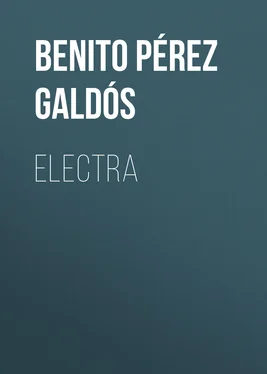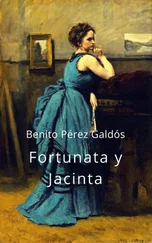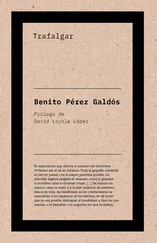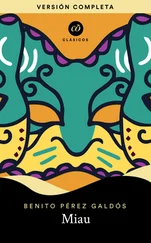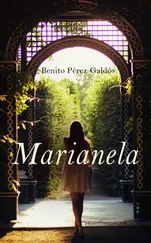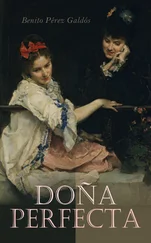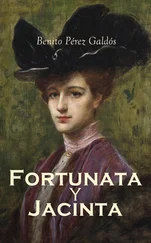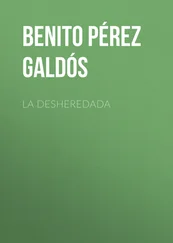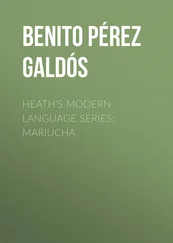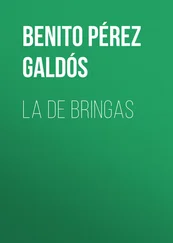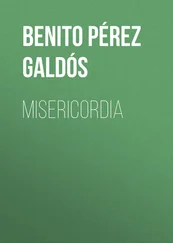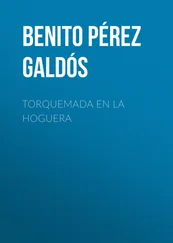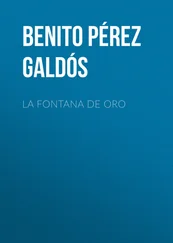Benito Pérez Galdós - Electra
Здесь есть возможность читать онлайн «Benito Pérez Galdós - Electra» — ознакомительный отрывок электронной книги совершенно бесплатно, а после прочтения отрывка купить полную версию. В некоторых случаях можно слушать аудио, скачать через торрент в формате fb2 и присутствует краткое содержание. Жанр: foreign_antique, foreign_prose, Зарубежные любовные романы, на испанском языке. Описание произведения, (предисловие) а так же отзывы посетителей доступны на портале библиотеки ЛибКат.
- Название:Electra
- Автор:
- Жанр:
- Год:неизвестен
- ISBN:нет данных
- Рейтинг книги:3 / 5. Голосов: 1
-
Избранное:Добавить в избранное
- Отзывы:
-
Ваша оценка:
- 60
- 1
- 2
- 3
- 4
- 5
Electra: краткое содержание, описание и аннотация
Предлагаем к чтению аннотацию, описание, краткое содержание или предисловие (зависит от того, что написал сам автор книги «Electra»). Если вы не нашли необходимую информацию о книге — напишите в комментариях, мы постараемся отыскать её.
Electra — читать онлайн ознакомительный отрывок
Ниже представлен текст книги, разбитый по страницам. Система сохранения места последней прочитанной страницы, позволяет с удобством читать онлайн бесплатно книгу «Electra», без необходимости каждый раз заново искать на чём Вы остановились. Поставьте закладку, и сможете в любой момент перейти на страницу, на которой закончили чтение.
Интервал:
Закладка:
Benito Pérez Galdós
Electra
INTRODUCTION
Benito Pérez Galdós, the author of the following drama, was born May 10, 1845, at Las Palmas, in the Canary Islands. Through modesty, or reserve, he has withheld every biographical detail concerning his early life. In fact his biographer, Leopoldo Alas, tells us that it was only with the greatest difficulty he obtained from him the admission that he was born in the Canary Islands. He studied there in the State College, and came to Madrid in 1863, for the purpose of reading law. This profession held but little interest for him, and he did not follow it further. He was already dreaming of a literary career, and after a brief trial of journalism, his first novel, La Fontana de Oro (1871), was published.
In 1872 his next book, El Audaz , was completed. Then taking as a model the historical novels of Erckmann-Chatrian, he began his Episodios Nacionales , which alone fill twenty volumes. Add to this number some thirty volumes of Novelas Contemporáneas , and one sees the monument that Galdós offers us of the wonderful persistence and fertility of his talent.
It is upon the Novelas that his wider literary reputation rests, for in the narration of contemporary Spanish life, in the reflection of the ideas and the sentiments of the people, he has no rival.
Comparatively little has been written by him for the theatre, but he has always been a welcome contributor and when, during the year 1900, the Director of the Teatro Español asked him for a piece for the next season he seized the opportunity of advancing, in Electra , his liberal ideas.
This drama was represented at Madrid, January 30, 1901, and made a deep impression on the Spanish people. "At the end of the first act," says the Imparcial , "the applause was frantic."
The last word of the play, "resucita," is not only the key note of the drama, but the summing up of Galdós' desires, and the expression of his ambition for his country and his countrymen.
The purpose of the play and the spirit of the author are accurately voiced by Lopez Ballesteras, in the Heraldo , January 31, 1901. "Last night," said he, "will mark a great date in history for the Spanish theatre and for liberty. It is a movement of social and political renovation, Spain demands light and liberty; she demands the right to live under modern, European conditions; she is coming to life."
O. G. B.PERSONAJES
Electra (18 años)
Evarista (50 años), esposa de Don Urbano
Máximo (35 años)
Don Salvador Pantoja (50 años)
El Marqués de Ronda (58 años)
Don Leonardo Cuesta, agente de Bolsa (50 años)
Don Urbano García Yuste (55 años)
Mariano, auxiliar de laboratorio
Gil, calculista
Balbina, criada vieja
Patros, criada joven
José, criado viejo
Sor Dorotea
Un Operario
La Sombra de Eleuteria
ELECTRA
ACTO PRIMERO
Sala lujosa en el palacio de los señores de García Yuste. A la derecha, paso al jardín. Al fondo, comunicación con otras salas del edificio. A la derecha primer término, puerta de la habitación de Electra. (Izquierda y derecha se entiende del espectador.)
ESCENA PRIMERA
El Marqués; José, por el foro .
José. Están en el jardín. Pasaré recado.
Marqués. Aguarda. Quiero dar un vistazo a esta sala. No he visitado a los señores de García Yuste desde que habitan su nuevo palacio… ¡Qué lujo!… Hacen bien. Dios les da para todo, y esto no es nada en comparación de lo que consagran a obras benéficas. ¡Siempre tan generosos…!
José. ¡Oh, sí, señor!
Marqués. Y siempre tan retraídos… aunque hay en la familia, según creo, una novedad muy interesante…
José. ¿Novedad? ¡Ah! sí…¿lo dice por…?
Marqués. Oye, José: ¿harás lo que yo te diga?
José. Ya sabe el señor Marqués que nunca olvido los catorce años que le serví… Mande Vuecencia.
Marqués. Pues bien: hoy vengo exclusivamente por conocer a esa señorita que tus amos han traído poco ha de un colegio de Francia.
José. La señorita Electra.
Marqués. ¿Podrás decirme si sus tíos están contentos de ella, si la niña se muestra cariñosa, agradecida?
José. ¡Oh! sí… Los señores la quieren… Sólo que…
Marqués. ¿Qué?
José. Que la niña es algo traviesa.
Marqués. La edad…
José. Juguetona, muy juguetona, señor.
Marqués. Es monísima; según dicen, un ángel…
José. Un ángel, si es que hay ángeles parecidos a los diablos. A todos nos trae locos.
Marqués. ¡Cuánto deseo conocerla!
José. En el jardín la tiene Vuecencia. Allí se pasa toda la mañana enredando y haciendo travesuras.
Marqués ( mirando al jardín ). Hermoso jardín, parque más bien: arbolado viejo, del antiguo palacio de Gravelinas…
José. Sí, señor.
Marqués. La magnífica casa de vecindad que veo allá ¿no es también de tus amos?
José. Con entrada por el jardín y por la calle. En el piso bajo tiene su laboratorio el sobrino de los señores: el señorito Máximo, primer punto de España en las matemáticas y en la… en la…
Marqués. Sí: el que llaman el Mágico prodigioso … 1 1 The name el Mágico prodigioso , is purposely given to Máximo by the author, in order to show that in Spain science is still considered, by many, as a sort of sorcery; hence, that Spain is not abreast with modern thought.
Le conocí en Londres… no recuerdo la fecha… Aún vivía su mujer.
José. El pobrecito quedó viudo en Febrero del año pasado… Tiene dos niños lindísimos.
Marqués. No hace mucho he renovado con Máximo mi antiguo conocimiento, y aunque no frecuento su casa, por razones que yo me sé, somos grandes amigos, los mejores amigos del mundo.
José. Yo también le quiero. ¡Es tan bueno…!
Marqués. Y dime ahora: ¿no se arrepienten los señores de haber traído ese diablillo?
José. ( recelando que venga alguien ). Diré a Vuecencia… Yo he notado… ( Ve venir a Don Urbano por el jardín. ) El señor viene.
Marqués. Retírate…
ESCENA II
El Marqués, Don Urbano.
Marqués ( dándole los brazos ). Mi querido Urbano…
Don Urbano. ¡Marqués! ¡Dichosos los ojos…! 2 2 The complete expression would be: ¡Dichosos los ojos que le ven a V.! [3] [4]
Marqués. ¿Y Evarista?
Don Urbano. Bien. Extrañando mucho las ausencias del ilustre Marqués de Ronda.
Marqués. ¡Ay, no sabe usted qué invierno hemos pasado!
Don Urbano. ¿Y Virginia?
Marqués. No está mal. La pobre, siempre luchando con sus achaques. Vive por el vigor tenaz, testarudo digo yo, de su grande espíritu.
Don Urbano. Vaya, vaya…¿Con que…? ( Señalando al jardín. ) ¿Quiere usted que bajemos?
Marqués. Luego. Descansaré un instante. ( Se sienta. ) Hábleme usted, querido Urbano, de esa niña encantadora, de esa Electra, a quien han sacado ustedes del colegio.
Don Urbano. No estaba ya en el colegio. Vivía en Hendaya 3 3 Hendaya , French Hendaye, lies on the right bank of the Bidassoa. It is the last French station before crossing the river into Spain.
con unos parientes de su madre. Yo nunca fui partidario de traerla a vivir con nosotros; pero Evarista se encariñó hace tiempo con esa idea; su objeto no es otro que tantear el carácter de la chiquilla, ver si podremos obtener de ella una buena mujer, o si nos reserva Dios el oprobio de que herede las mañas de su madre. Ya sabe usted que era prima hermana de mi esposa, y no necesito recordarle los escándalos de Eleuteria, del 80 al 85.
Интервал:
Закладка:
Похожие книги на «Electra»
Представляем Вашему вниманию похожие книги на «Electra» списком для выбора. Мы отобрали схожую по названию и смыслу литературу в надежде предоставить читателям больше вариантов отыскать новые, интересные, ещё непрочитанные произведения.
Обсуждение, отзывы о книге «Electra» и просто собственные мнения читателей. Оставьте ваши комментарии, напишите, что Вы думаете о произведении, его смысле или главных героях. Укажите что конкретно понравилось, а что нет, и почему Вы так считаете.
